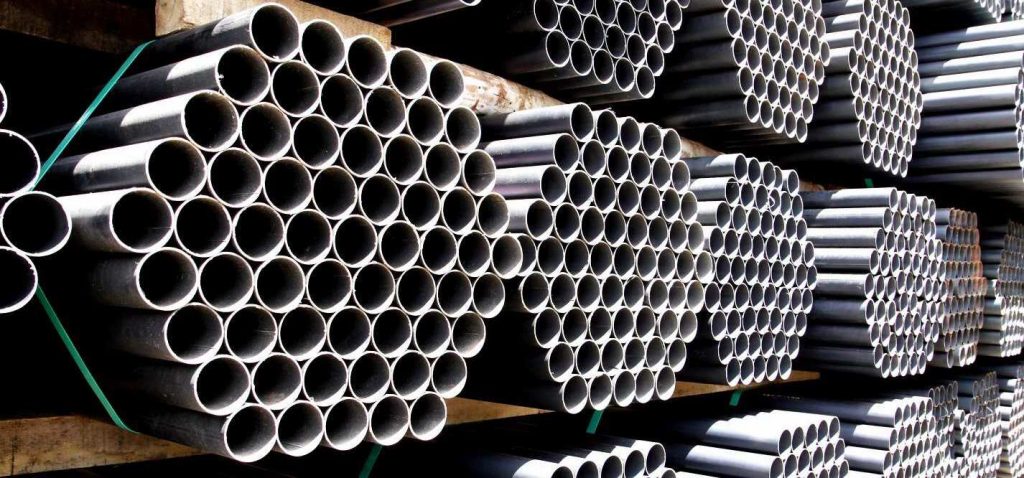Yesterday, President Donald Trump said that he has decided to impose tariffs of 25% on all steel imports and 10% on aluminum imports, promising to sign the measures next week. Trade remedies for steel and aluminum are long overdue.
[Robert E. Scott | March 2, 2018 | Marketwatch]
Trump promised quick action after announcing investigations of the national-security threats imposed by steel and aluminum imports nearly a year ago. Delays worsened the import crisis for thousands of U.S. steel and aluminum workers, many of whom are facing layoffs and plant-closing announcements.
The crisis in steel and aluminum trade is driven by the development of massive amounts of excess production capacity, which has led to import dumping by China and a number of other countries singled out in the Commerce Department’s reports on its Section 232 investigations into the impact of imports of steel and aluminum products on national security.
The United States is the world largest importer of steel, and imports exceed exports by nearly four to one. Ten steel furnaces have closed since 2000, and we have lost 52,000 U.S. steelmaking jobs (37.8%) since January 2000.
Meanwhile, world steelmaking capacity has increased 127% since 2000, reaching 2.4 billion metric tons. Global excess capacity is 700 millions tons, nearly 30% of this total. China is by far the largest steel producer and exporter, and the largest source of excess capacity, in the world. For some types of steel, such as electrical transformers, only one U.S. producer remains.
Between 2013 and 2016, U.S. aluminum industry employment fell by 68%. Six smelters shut down, and only two of the five remaining smelters are operating at full capacity, despite an increase in U.S. demand for primary aluminum. There is only one remaining U.S. producer of high-quality aluminum alloy needed for military aerospace needs, and maintaining and upgrading our infrastructure, which must be done for reasons of economic security, is a major use of aluminum.
In its reports, which presented tariffs as one of three optional responses, the Commerce Department found that unfair steel and aluminum imports “threaten to impair the national security.” In addition to China, other key countries identified in the Commerce reports (singled out for the highest possible tariffs) included Brazil, South Korea, Russia, Vietnam, and six others in steel; and Hong Kong, Russia, Venezuela, and Vietnam in aluminum.
China’s exports, in particular, are so widespread that they are having pernicious effects on global trade in many downstream steel products. This helps explain why it is necessary to have tariffs on imports from all countries, and not just unfair traders like China.
For example, anti-dumping and countervailing duty complaints have been used to reduce or eliminate direct U.S. imports of many basic and semi-finished steel products from China. However, China is now a major exporter of basic steel commodities to many other countries, where it is often transformed into downstream products such as pipe, rails, and bars that are ultimately exported to the United States from those downstream producers.
Major steel exporter’s imports of steel from China between 2009 and 2015 are shown in the figure below The biggest importers of Chinese steel were South Korea and Japan, followed by the Russian Federation and Turkey. In recent years, Vietnam soared into second place among these countries, and imports by Mexico have also increased sharply.

These countries then export products made with Chinese steel, at unfair prices, to the United States.
Tariffs and quotas can be used to help domestic producers recover from unfair trade. However, they must be carefully designed to eliminate excess steel and aluminum production capacity in China, and to encourage cooperative policies designed to address these problems. At a minimum, tariffs or quotas should be applied to all steel and aluminum products, including both basic and downstream commodities.
Now that the tariffs have been announced, the United States should work with other nations to develop coordinated responses to unfair trade in these products.
This announcement should mark the beginning, rather than the end, of efforts to develop coordinated global responses to the problems of excess capacity and unfair trade in steel and aluminum products.
Robert E. Scott is senior economist and director of trade and manufacturing policy research at the Economic Policy Institute.













